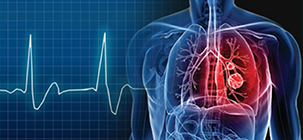NCV (Nerve Conduction Velocity Study)
Jump
to Tests
Nerve Conduction Velocity examines nerve injury and dysfunction. One of the most common types of tests that calculate the speed of electrical impulses travel through the peripheral nerves. A neurologist may recommend an NCV test in addition to an electromyogram or EMG to detect the presence, location, and extent of damage to a nerve or muscle.
Our peripheral nervous system is a network of motor and sensory nerves connecting the brain and spinal cord to the entire body. Peripheral nerves run along the spinal cord, helping experience the senses and build control over muscles. While healthy nerves relay electrical signals quicker and move with velocity, impaired nerves can’t perform to their optimum best.
NCV test helps detect the following conditions or diseases:
- Guillain-Barre Syndrome
- Charcot-Marie-Tooth Disease
- Carpal Tunnel Syndrome
- Cervical Radiculopathy
- Lumbar Radiculopathy
- Multiple sclerosis
- Chronic Inflammatory Polyneuropathy and Neuropathy
- Herniated Disk Diseases
- Sciatic Nerve Disorders
- Diabetic Nerve Damage
What happens during NCV?
While performing an NCV test, the nerve would be stimulated through electrodes attached to the skin. Two electrodes will be placed on the skin over the nerve, one will stimulate the nerve with a gentle electrical impulse, and the other record the signals. This process is repeated for one nerve at a time (requiring testing).
Speed would be calculated by measuring the distance between the electrodes and the time the electrical signal traveled between electrodes.
What does the NCV detect?
An NCV test is performed on individuals experiencing symptoms of tingling sensation, numbness, sudden or sharp pain in the feet or back, buzzing sensation, or low grip. This test can diagnose any condition related to the nervous system ranging from nerve damage, sciatic nerve, inherited neurological condition, carpel tunnel syndrome, and others.
Instructions:
- Avoid using any lotions or oils on your skin a day before the test.
- Avoid caffeine intake 24-48 hrs beforehand.
- It is important to inform your doctor if you have a pacemaker. It may affect the electronic impulses of your medical device.




